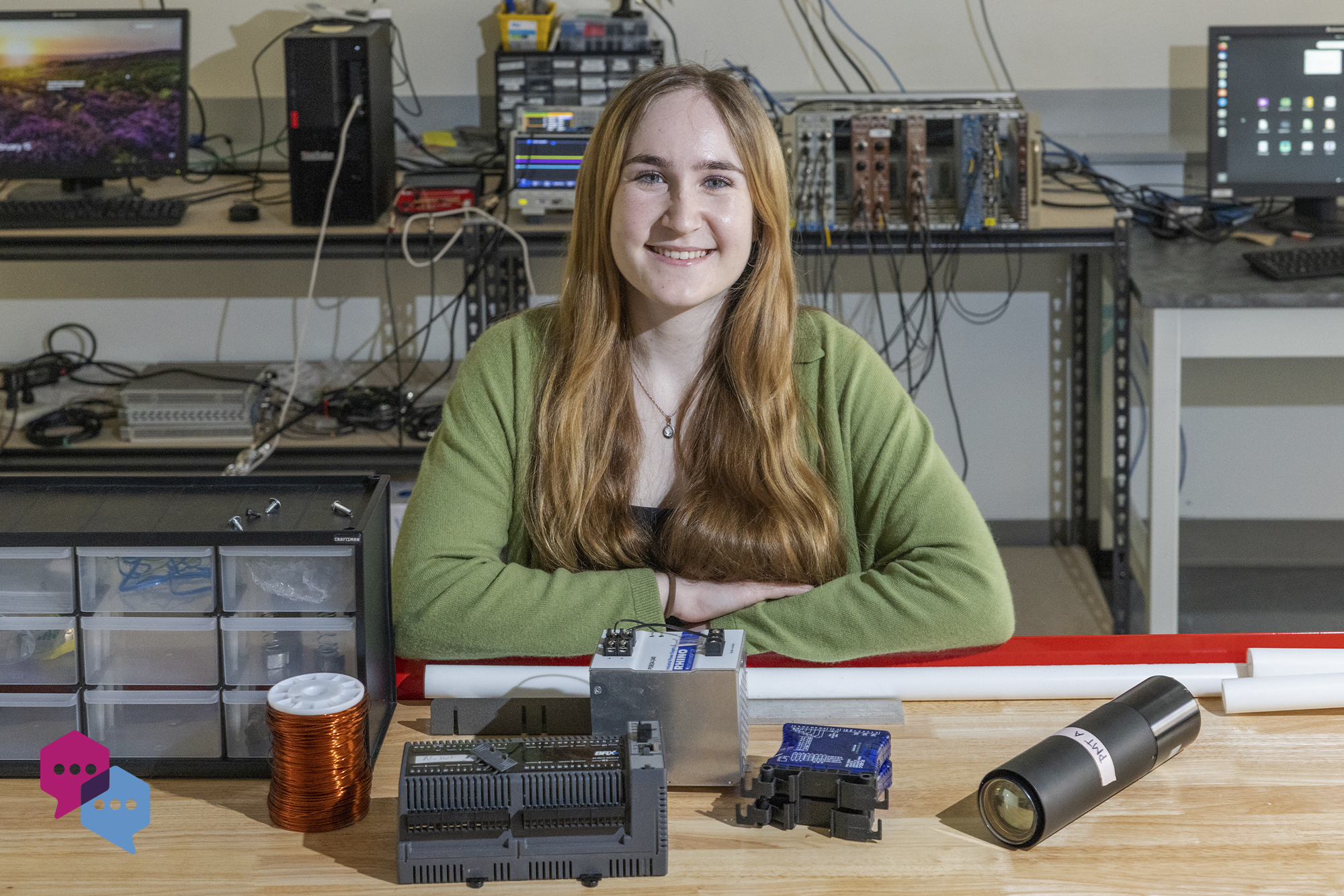Sarah Vickers is a rising senior studying physics and astronomy within the UNC College of Arts and Sciences. She studies ways to detect neutrinoless double beta decay, a hypothetical radioactive process that could prove that neutrinos — or “ghost particles” — are their own antiparticles. If proven true, this could explain why there is significantly more matter than antimatter in the universe.
Q: How did you discover your specific field of study?
A: In the seventh grade, I watched an episode of “Nova” on PBS about space-time and relativity, which was so mesmerizing that I promptly decided I was going to become a physicist. Like many of us, my initial fascination was with space, and I was even in an astronomy lab for a couple years in high school. As cool as it was, I decided I wanted to be much more hands on, so I switched into experimental particle physics. UNC-Chapel Hill is a fantastic place for neutrino physics, and I’ve spent the last three years really delving into this rich and exciting subfield.
Q: Academics are problem-solvers. Describe a research challenge you’ve faced and how you overcame it.
A: Over the summer, a graduate student and I spent several weeks trying to install, rewrite, and run a data acquisition program on a lab computer with an outdated operating system and no graphical user interface. None of our electronics would connect, and it seemed like we were running into every possible problem. We overcame this by totally giving up on it, scrapping the work we did, and installing an updated version of the operating system. This meant we had to start over, redoing all the installations we made in the previous weeks. But now we have a working system! Sometimes, you’ve got to go back to the beginning to fix something.
Q: Describe your research in five words.
A: Ghost particles save the universe.
Q: Who or what inspires you? Why?
A: Once you’ve reached a niche of academic research, everyone knows everyone. As I started attending conferences, summer schools, and symposiums, I realized I had some kind of connection with nearly every person I talked to. From chatting over Tim Hortons with the man who received the Nobel Prize for the detection of neutrino mass, to always managing to find the one or two other women from Kentucky at any gathering of physicists, I have made some incredible connections within this community. As much as physicists get a bad rap for being antisocial or aloof or just plain odd, there is a whole network of nuclear physicists out there that want me to be successful — and that support is what drives me forward.
Q: If you could pursue any other career, what would it be and why?
A: A video editor for big movies! I used to do a lot of video editing and live broadcasting for track and cross country meets across the eastern part of the U.S., but I think it would be a lot of fun to work on a team for a huge film. If I could go back in time and be an editor for the “Lord of the Rings” trilogy, that would be my dream job.


